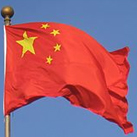Post Doklam, India needs to watch China’s bullish economics led cultural embrace of South Asia
Doklam brought into perspective the fractured relationship between India and China on the global stage and increased fears of China’s growing unilateralism as it inexorably broadens its interests and sphere of influence, especially in South Asia.
- Shruti Pandalai |
- January 01, 2018 |














